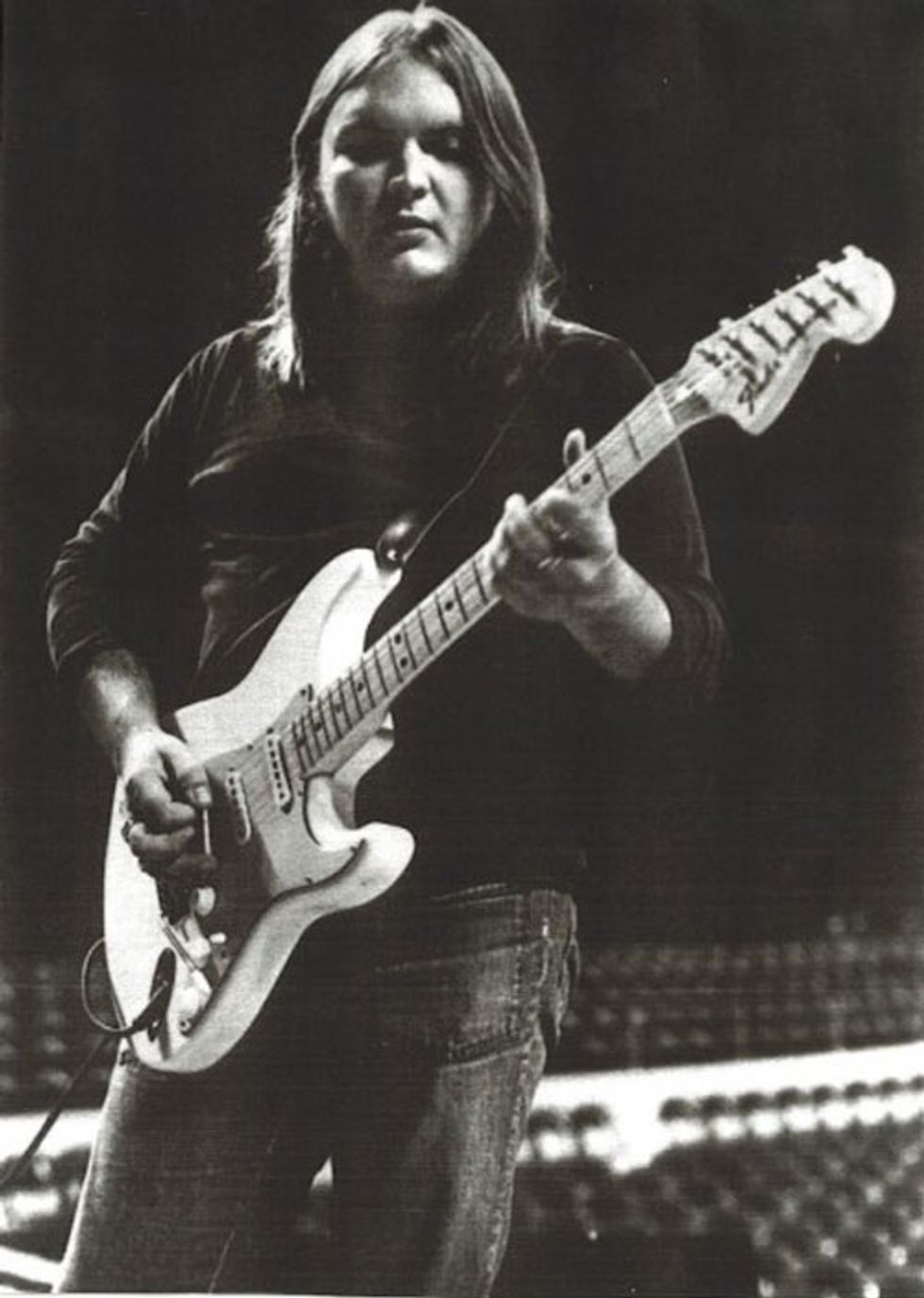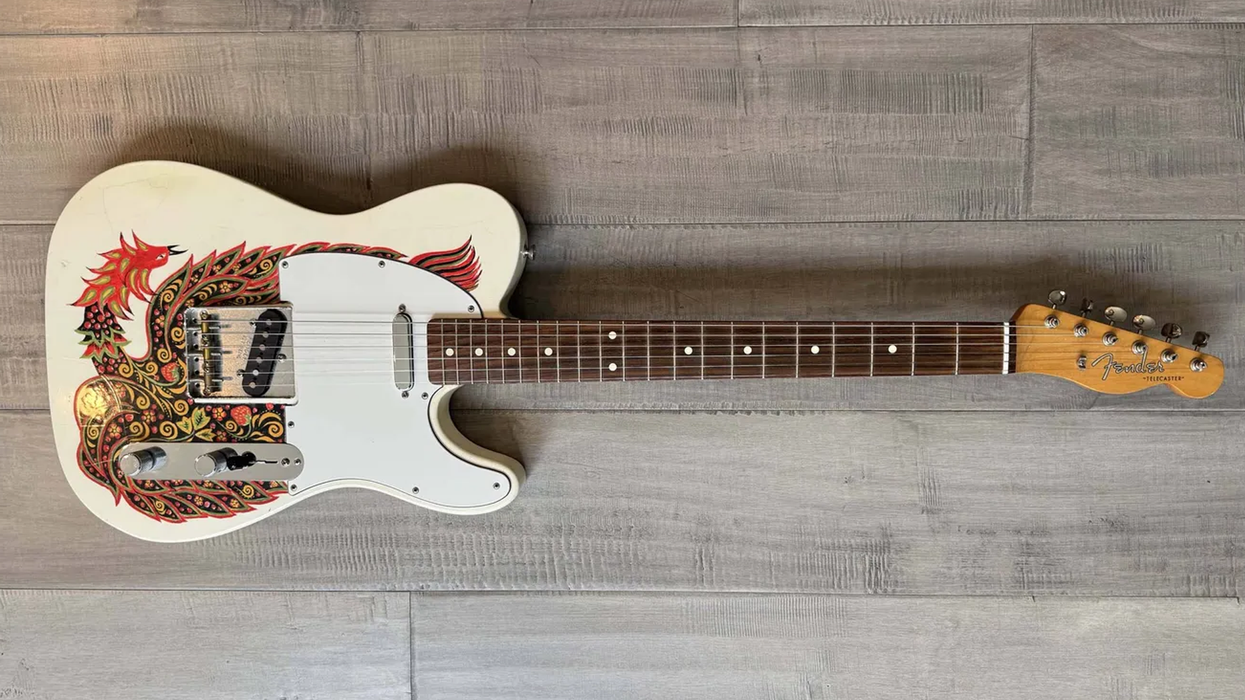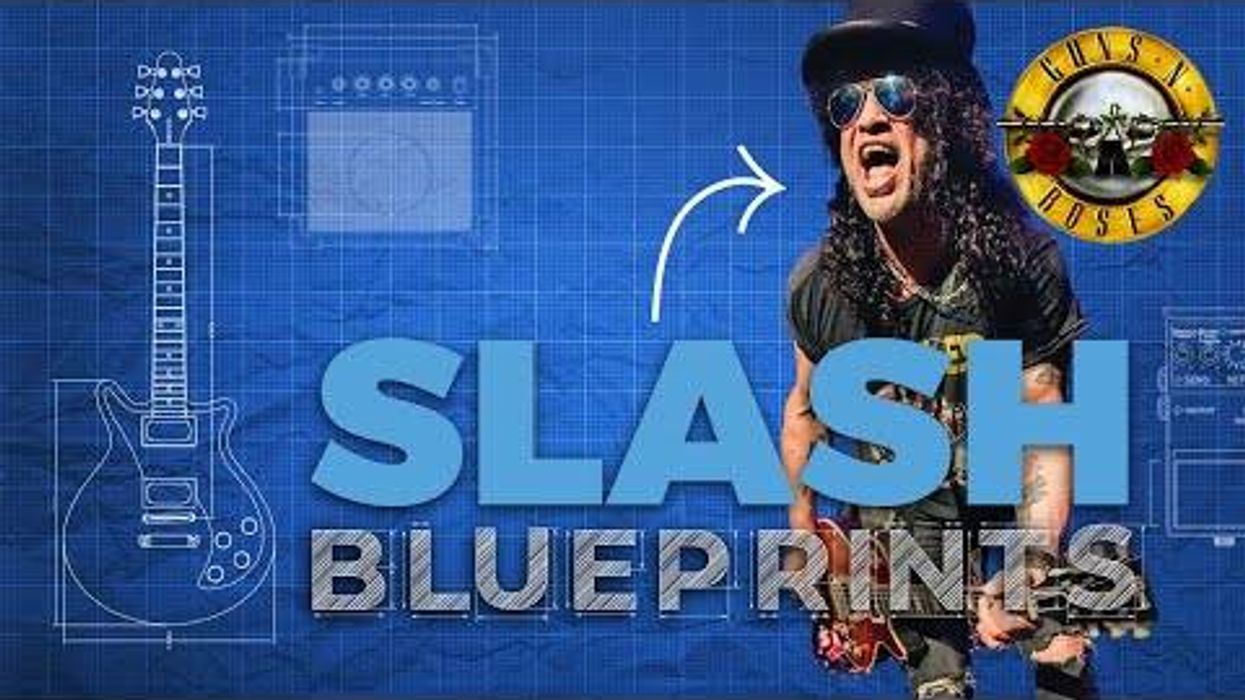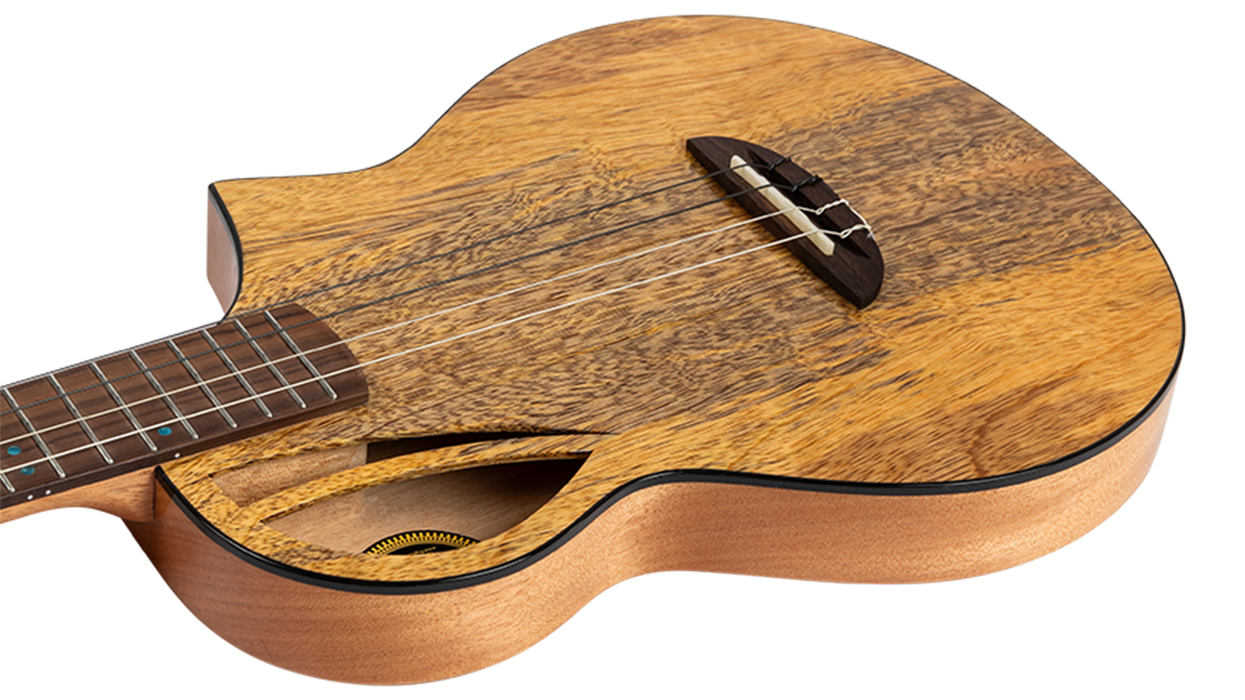Guitarist Ed King, who died on Wednesday, August 23, at age 68, described himself as “out of my mind for quitting” Lynyrd Skynyrd, but added “it was the best thing I ever did.” The California native didn’t always mesh with his brawling, muscle-car-crashing bandmates from the South, and after three studio albums and a grueling road schedule, and—in particular—a rough night onstage in May 1975, when he broke strings and drew the ire of hard-ass frontman and lyricist Ronnie Van Zant for a final time, he gathered up his gear and left, mid-tour.
By then, the Strat- and Gibson-wielding guitarist and songwriter, who died at his Nashville home after a battle with lung cancer, had played a role in assuring Lynyrd Skynyrd’s enduring legacy. He wrote or cowrote and played on the band’s career-making hits, including “Sweet Home Alabama,” which starts with King’s bright, crisp Fender tone ringing out half its two-guitar core riff.
King was a native of Glendale, California, and at 17 he began playing in Thee Sixpence, which became the Strawberry Alarm Clock. King and the band’s keyboardist, Mark Weitz, cowrote “Incense and Peppermints,” which was a No. 1 hit in 1967 and has become an acknowledged classic in the cannon of early psychedelic rock. King met the original members of Lynyrd Skynyrd in 1968, when they opened a few dates for the Alarm Clock. He was immediately impressed with their talent and, in particular, with Ronnie Van Zant, so they stayed in touch. When the Strawberry Alarm Clock fell apart due to legal and financial entanglements in 1972, King got a call from Van Zant asking if he’d replace departing bassist Leon Wilkeson. “I didn’t even think about it,” he told Gibson.com’s Jaan Uhelszki. “I said, ‘Just get in the car and come pick me up. I don’t even have a car.’”
While the band’s volatile interpersonal relations—with Van Zant as bare-knuckled ringmaster—was a surprise, King was thrilled about Skynyrd’s musicality and ambition. And when Wilkeson returned after a short absence, King picked up his guitar and the triple-6-string sound that became the band’s trademark was forged.
During his tenure in Lynyrd Skynyrd, which included the group’s first three now-classic albums, King wrote or cowrote “Saturday Night Special,” “Swamp Music,” Railroad Song,” “Poison Whiskey,” and “Workin’ for MCA.” And, of course, he also played on the studio version of “Free Bird,” from the group’s 1973 debut, laying down the song’s bass lines. In the band’s live performances, he would join Skynyrd cofounder Gary Rossington to create dual-slide-guitar fireworks.
Reflecting on his 1975 departure, King told Gibson’s Uhelszki, “I’m like from a different mindset from those guys. I was just there to play music. I wasn’t in there to get beat up, get spit upon, get dragged around a room, get jagged glass held up to my throat. I wasn’t into all that.” King was replaced by Steve Gaines, who played on the famed live version of “Free Bird” captured on the album One More from the Road. Gaines and Van Zant were among those killed in the band’s tragic 1977 airplane crash.
King rejoined Skynyrd in 1987 at Charlie Daniels’ Volunteer Jam and stayed in the fold another nine years, until congestive heart failure led to his retirement. (In 2011, King had a heart transplant.) But in 2006, he was inducted into the Rock & Roll Hall of Fame as a member of Lynyrd Skynyrd. During the band’s induction performance of “Free Bird,” King once again recreated his ripping slide guitar on the song, bringing it to a fiery finale alongside Rossington and Rickey Medlocke. Medlocke joined the group when King left the second time, in ’96, and remains in the Skynyrd camp. In a strange twist, Medlocke had played drums in Skynyrd from 1971 to ’72. He was also the frontman for Blackfoot in that band’s mid-’70s heyday.
King spent his retirement in Nashville quietly. Sustained by his Lynyrd Skynyrd royalties, he played occasional gigs with friends, but enjoyed staying at home with his wife, Sharon, and their teddybear goldendoodles.
YouTube It
Watch Ed King and Gary Rossington tear up the finale of “Free Bird” on dual slide guitars during Lynyrd Skynyrd’s 2006 induction into the Rock & Roll Hall of Fame, with Rickey Medlocke chording and riffing on his Explorer.















![Rig Rundown: Russian Circles’ Mike Sullivan [2025]](https://www.premierguitar.com/media-library/youtube.jpg?id=62303631&width=1245&height=700&quality=70&coordinates=0%2C0%2C0%2C0)
















![Rig Rundown: AFI [2025]](https://www.premierguitar.com/media-library/youtube.jpg?id=62064741&width=1245&height=700&quality=70&coordinates=0%2C0%2C0%2C0)




















 Zach loves his Sovtek Mig 60 head, which he plays through a cab he built himself at a pipe-organ shop in Denver. Every glue joint is lined with thin leather for maximum air tightness, and it’s stocked with Celestion G12M Greenback speakers.
Zach loves his Sovtek Mig 60 head, which he plays through a cab he built himself at a pipe-organ shop in Denver. Every glue joint is lined with thin leather for maximum air tightness, and it’s stocked with Celestion G12M Greenback speakers.






